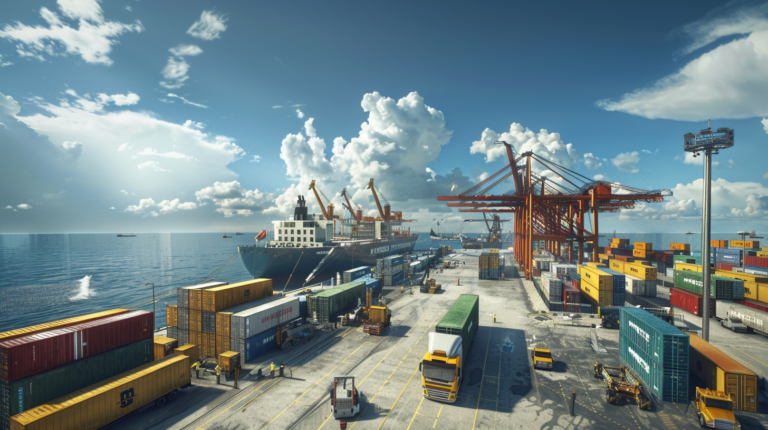marine & sea water applications
Typical Material Grade Used but not Limited to:
C95400
C95500
C63000
C90300
C95800
MIL-B-24480

Bronze machined parts are highly valued in marine and seawater applications due to their exceptional properties that make them ideal for withstanding the harsh and corrosive conditions of marine environments. Here’s how bronze parts play a crucial role in these applications:
- Superior Corrosion Resistance: Bronze alloys, especially aluminum bronze and phosphor bronze, are highly resistant to corrosion caused by saltwater and marine environments. Saltwater can quickly degrade many metals, but bronze’s ability to resist oxidation and galvanic corrosion makes it an excellent choice for marine applications.
- Longer Lifespan: Bronze parts are able to resist the damaging effects of constant exposure to seawater, reducing the frequency of repairs and replacements. This significantly extends the operational life of equipment in marine environments.
- High Strength-to-Weight Ratio: Bronze offers a combination of strength and durability that is essential in marine applications, where components must withstand high mechanical loads, impact, and wear. The alloy’s strength ensures that parts perform effectively, even under the stress of high-pressure conditions, such as in ship propellers, rudders, or pumps.
- Impact Resistance: Bronze parts are also highly resistant to impact and mechanical shock, which is crucial in marine environments where equipment may experience sudden loads or impacts (e.g., during docking or rough sea conditions).
- Self-Lubricating Properties: Bronze has natural lubricating qualities, particularly when used in applications like bearings, bushings, and shafts. This reduces friction between moving parts, improving efficiency and decreasing wear. The reduced friction is especially important in the marine environment, where lubrication might be difficult to maintain.
- Durability in High-Wear Situations: Components like propeller shafts, thrust bearings, and sea water pump components are subject to continuous friction. Bronze’s wear resistance helps these parts function smoothly over time, even in high-load conditions.
- Heat Dissipation: Bronze has excellent thermal conductivity, which is beneficial in marine environments where components might need to dissipate heat quickly. For example, in marine engines, heat exchangers, and cooling systems, bronze helps to maintain an optimal temperature by transferring heat away from critical components.
- Temperature Stability: Bronze can also withstand significant temperature variations, which is important for marine systems that experience fluctuating temperatures, especially when moving between different oceanic regions.
- Easy to Machine: Bronze is relatively easy to machine compared to other metals like steel, making it ideal for creating intricate and custom parts required for specific marine applications.
- Versatility in Component Manufacturing: Bronze can be made into a variety of parts used across the marine industry, including valves, seals, bearings, propellers, and pumps, offering versatile solutions to various engineering challenges.
Bronze machined parts are used in a wide range of marine and seawater applications due to their strength, corrosion resistance, and performance under water:
- Marine Propellers and Rudders: Bronze alloys, particularly aluminum bronze, are often used in propellers and rudders due to their resistance to seawater corrosion and their ability to withstand the stresses of high-speed movement.
- Pumps and Pump Components: Seawater pumps, cooling pumps, and other critical components in marine engines are often made of bronze, as it resists the corrosive effects of saltwater and the wear from the constant motion of water.
- Shafts and Bearings: Propeller shafts, rudder shafts, and bearings are commonly made from bronze alloys, as they resist both corrosion and wear, ensuring smooth operation in harsh environments.
- Seawater Cooling Systems: Bronze components in heat exchangers and other cooling systems help to transfer heat away from engines and other critical systems, ensuring that they remain within operational temperature ranges.
- Marine Hardware: Fasteners, valves, and other marine hardware made from bronze offer corrosion resistance and durability, making them suitable for use in boats, ships, and offshore structures exposed to seawater.
- Seals and Bushings: Bronze bushings and seals in marine equipment reduce friction between moving parts and prevent leakage of fluids, ensuring efficient performance and protection against wear.
- Saltwater Exposure: Bronze’s ability to resist pitting and galvanic corrosion (which happens when two dissimilar metals are in contact with seawater) makes it ideal for marine environments. This is especially important for parts exposed to direct contact with seawater, where materials without proper resistance can quickly degrade.
- Biofouling Resistance: Some bronze alloys, especially those containing aluminum, are resistant to biofouling, which is the accumulation of marine organisms (e.g., barnacles and algae) on submerged surfaces. This property is beneficial for parts like hulls and propellers that need to remain clean and free of fouling organisms for optimal performance.
- Sustainability: As a non-ferrous material, bronze is more environmentally friendly in marine applications. It reduces the risks associated with rusting and contamination of seawater, ensuring that marine ecosystems are not negatively impacted.
- Cost Efficiency: While bronze parts can be more expensive than other materials initially, their durability and long lifespan lead to lower maintenance and replacement costs over time, which can make them a more cost-effective solution for marine equipment in the long run.
Bronze machined parts are essential for marine and seawater applications due to their corrosion resistance, strength, wear resistance, and low friction properties. These parts ensure the longevity and reliability of marine equipment that operates in harsh, saltwater environments. Whether in propellers, pumps, shafts, or marine hardware, bronze is a material that provides excellent performance in extreme conditions, making it a key component in the maritime industry.

